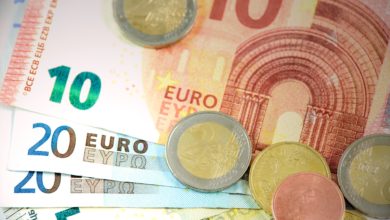Full steam backwards on the EU wine lake
Article published in the European Voice on March 19, 2008.
First there is a subsidy to produce wine and then another subsidy to destroy it. The current cost to EU taxpayers of getting rid of surplus wine is €500 million. The ineffectiveness of EU wine policy is made all the more evident by falling European consumption of its own wines. Plus ça change…
First there is a subsidy to produce wine and then another subsidy to destroy it. The current cost to EU taxpayers of getting rid of surplus wine is €500 million. Plus ça change…
The ineffectiveness of EU wine policy is made all the more evident by falling European consumption of its own wines.
The US, South Africa, South American countries and Australia have significantly liberalised wine trade among themselves since 1998, giving entrepreneurs new opportunities to invest competitively.
The effect on the European market is obvious in any supermarket. ‘New World’ wines have taken off and their share of the market has been growing at an annual 10% for several years now. Last December an agreement was finally reached by EU agriculture ministers to reform the Union’s wine policy, to stabilise European production, and balance supply and demand. The reform also sought to make European wines more competitive, to conquer new markets and to simplify regulations.
While reforms such as giving producers more responsibility for avoiding the current waste go in the right direction, others miss the target or do not go far enough. The message of the market – which can be learned for nothing by simply going shopping – has not been heard.
There are still obstacles to the necessary free self-adjustment of supply and demand.
This is a vestige of the bad old days, Europe’s traditional wrong way round, with producers’ decisions guided by a system of subsidies rather than by consumers’ real needs.
The inefficiencies of the current system of managing exploitable land will stay until 2015. Worse: member states will be allowed to carry on as before at national level until 2018. Why should companies wishing to expand have to wait so long? Why extend a system to subsidise vine removal rather than encouraging the sale of land to other producers who want to expand? And do Brussels technocrats really have a monopoly of wisdom in the matter of defining the quality of wine, or the best way to make it? Why not let producers and consumers decide on this as well?
From a policy point of view, the ultimate proof of this dubious vintage is the bottom line. About this there can be no argument. Total subsidies, while reallocated under different names, will remain essentially the same and European taxpayers will have to pay for wine promotion both inside and outside Europe. Why? An opportunity has been missed for a reform which might have actually helped European wines to improve as well as to compete effectively.
Edmond Fitte is a researcher with the Brussels and Paris-based Institut économique Molinari





